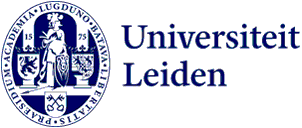
Recap LUMAN Launch
On Thursday May 11, medical anthropologists from Leiden University organized a festive opening of their new network, the Leiden University Medical Anthropology Network (LUMAN). In August 2022, these Leiden-based scholars started gathering and organizing this new network with two main goals, namely to foster an interfaculty exchange among medical anthropologists and to increase visibility and accessibility of the discipline in interdisciplinary collaborations.
As two of the network’s four convenors, Natashe Lemos Dekker (FSW) and Josien de Klerk (FGGA) explained during this opening event, medical anthropology focuses on a range of social scientific questions related to how people experience health and illness and to how access to health care is shaped by social inequalities. In the second part of the meeting, research pitches by network members provided the audience – which represented a range of disciplines and faculties – with examples of medical anthropological projects and their contributions to societal questions and interdisciplinary collaborations.
First, Nienke Slagboom (LUMC) offered a lively picture of her research in a Dutch former fishing village, showing how population health data, observations and in-depth conversations with residents revealed how poverty and other social circumstances intersect with health problems over multiple generations. In the second pitch, Jolanda Lindenberg (Leyden Academy on Vitality and Ageing/LUMC) highlighted several of her qualitative research projects with older adults, demonstrating how participatory methods help to get at perspectives of older adults themselves, as these methods invite them to reflect on pressing questions in their lives as well as on societal discourses around ageing. Finally, Annemarie Samuels (FSW) introduced the Globalizing Palliative Care project, pointing at the value of the ethnographic method of long-term participant observation to understand people’s experiences of and access to care at the end of life in various cultural settings.
Concluding the meeting, in his speech to officially open the network the Dean of the Faculty of Social and Behavioural Sciences, Paul Wouters, emphasized how this bottom-up network is relevant both for the members themselves and for the University, as the latter increasingly focuses on health research. Moreover, he suggested, the interfaculty structure of the network could be a model for other future interfaculty collaborations. Ultimately, one of the great strengths of anthropology, Wouters said, is to critically question assumptions in order to come to new perspectives. The connections that this network opens up are therefore both beneficial for addressing interdisciplinary questions on health, and for further developing theory in medical anthropology.
